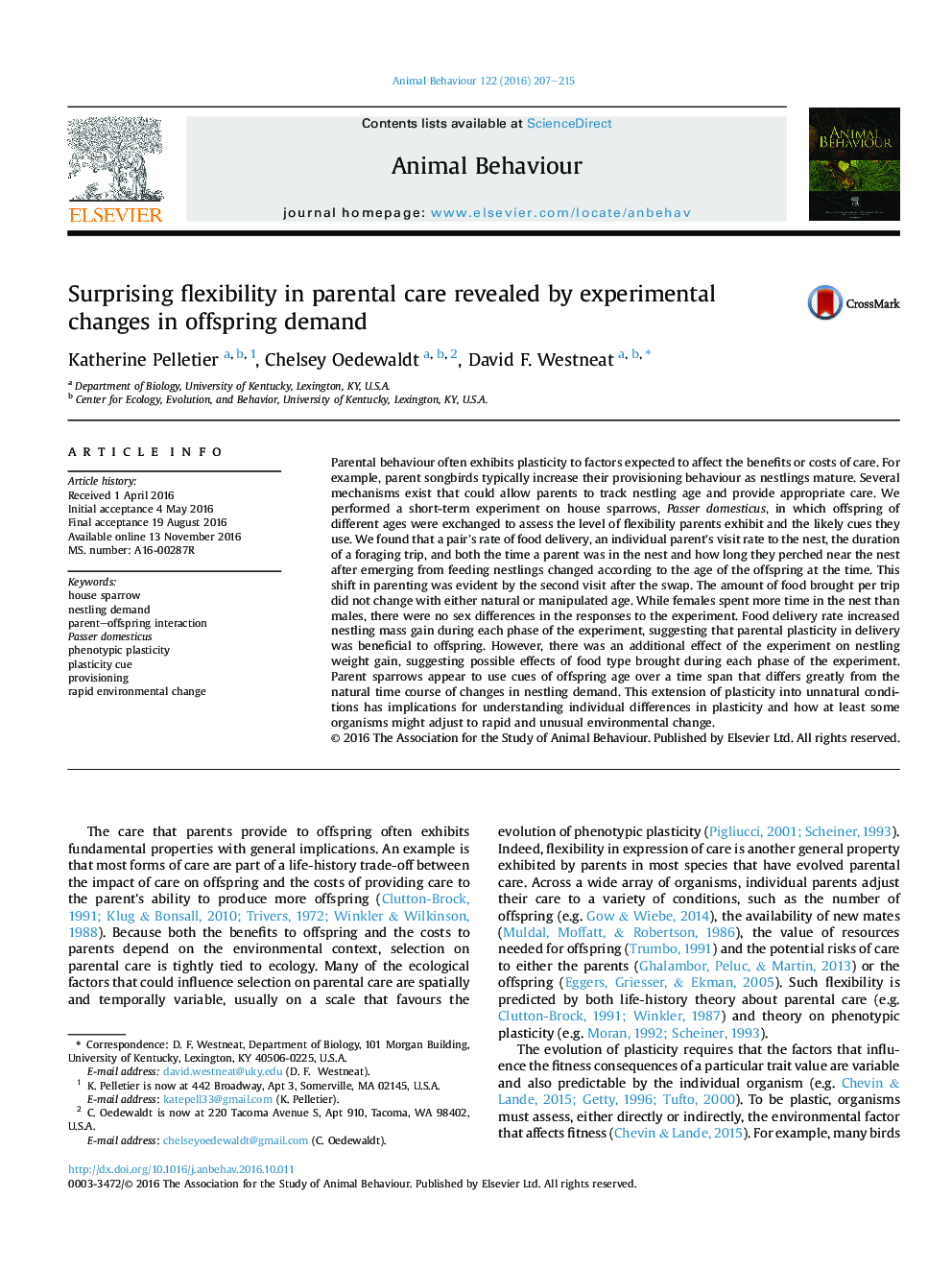| Article ID | Journal | Published Year | Pages | File Type |
|---|---|---|---|---|
| 5538387 | Animal Behaviour | 2016 | 9 Pages |
Abstract
Parental behaviour often exhibits plasticity to factors expected to affect the benefits or costs of care. For example, parent songbirds typically increase their provisioning behaviour as nestlings mature. Several mechanisms exist that could allow parents to track nestling age and provide appropriate care. We performed a short-term experiment on house sparrows, Passer domesticus, in which offspring of different ages were exchanged to assess the level of flexibility parents exhibit and the likely cues they use. We found that a pair's rate of food delivery, an individual parent's visit rate to the nest, the duration of a foraging trip, and both the time a parent was in the nest and how long they perched near the nest after emerging from feeding nestlings changed according to the age of the offspring at the time. This shift in parenting was evident by the second visit after the swap. The amount of food brought per trip did not change with either natural or manipulated age. While females spent more time in the nest than males, there were no sex differences in the responses to the experiment. Food delivery rate increased nestling mass gain during each phase of the experiment, suggesting that parental plasticity in delivery was beneficial to offspring. However, there was an additional effect of the experiment on nestling weight gain, suggesting possible effects of food type brought during each phase of the experiment. Parent sparrows appear to use cues of offspring age over a time span that differs greatly from the natural time course of changes in nestling demand. This extension of plasticity into unnatural conditions has implications for understanding individual differences in plasticity and how at least some organisms might adjust to rapid and unusual environmental change.
Related Topics
Life Sciences
Agricultural and Biological Sciences
Animal Science and Zoology
Authors
Katherine Pelletier, Chelsey Oedewaldt, David F. Westneat,
